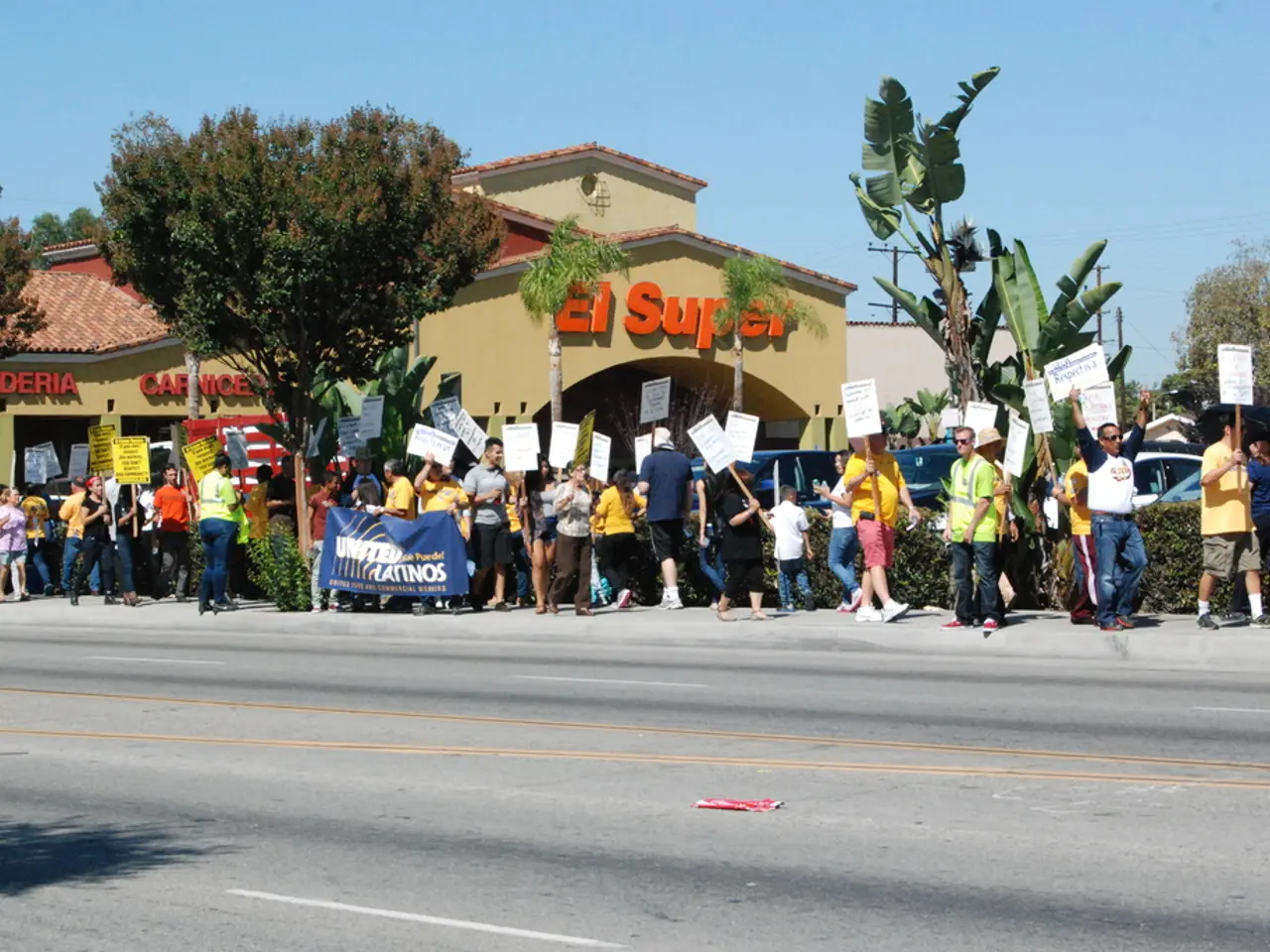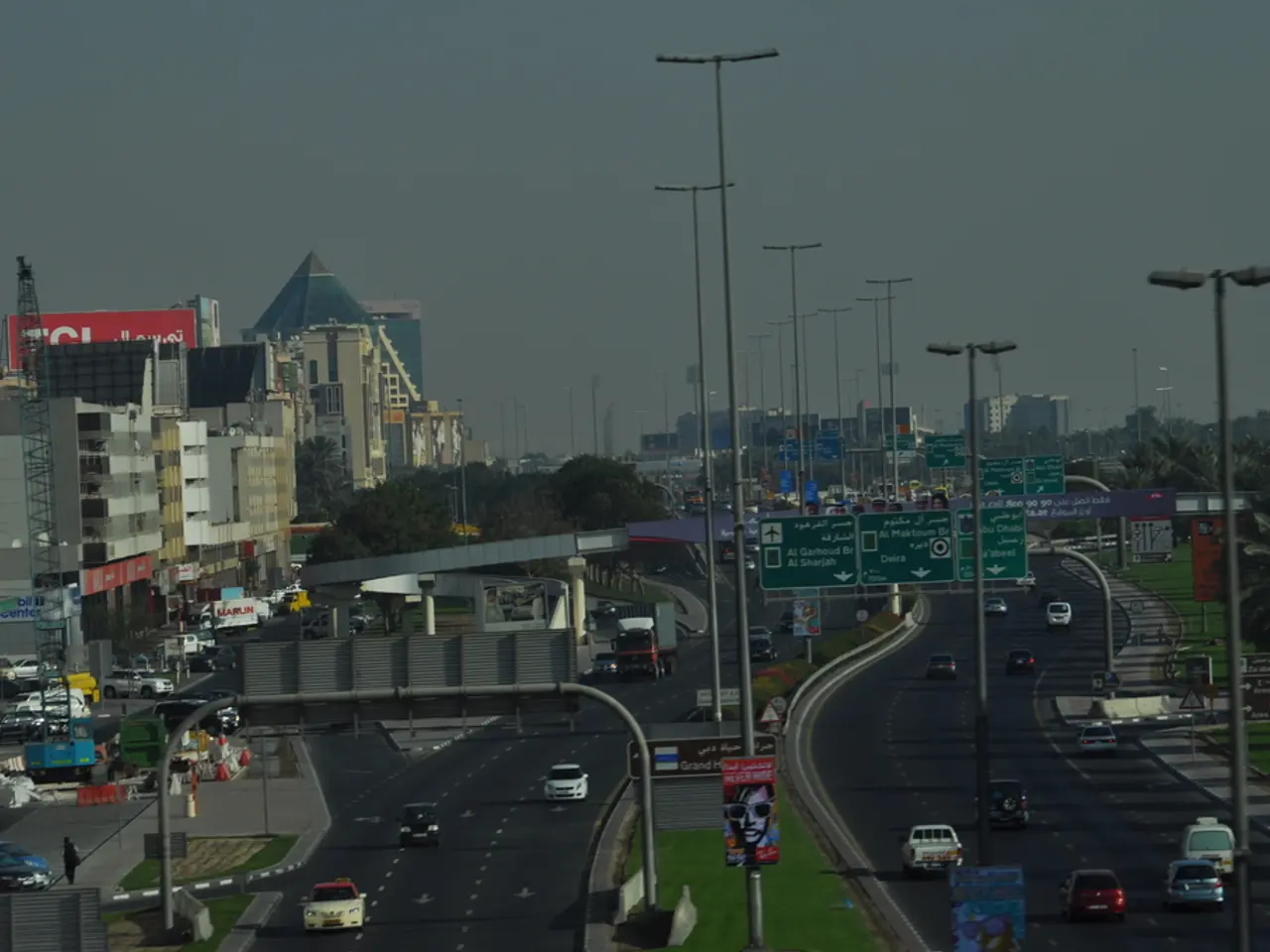House Freedom Caucus Potentially Abandoning President Trump, Risking Significant Tax Increase?
President Donald Trump's "One Big Beautiful Bill" (OBBB) has successfully passed the Senate, following a series of amendment votes that culminated in a narrow 51 to 50 victory on July 1, 2025. The bill, which now awaits action in the House, is expected to have significant implications for the American economy, national debt, and entitlement programmes.
## Impact on the American Economy
The OBBB makes the Trump tax cuts permanent, including the small business deduction, which proponents argue will help Main Street grow and hire. The legislation is described as delivering the largest middle- and working-class tax cut in U.S. history, with additional measures such as excluding tips and overtime from taxation. The bill has received praise from various industry leaders, including those in aviation and credit unions, and includes significant investment in infrastructure and modernization, such as $12.5 billion for overhauling the nation’s air traffic control system. Advocates assert that the bill is the most pro-American worker legislation in history, boosting pay for millions and providing targeted tax relief for service and hourly workers.
## Impact on National Debt
Some Senate Republicans voiced concerns about the bill’s impact on the federal deficit. However, the bill passed despite these reservations after late negotiations with fiscal hawks. The bill includes a controversial provision that raises the debt ceiling by $5 trillion, which has drawn criticism from some lawmakers worried about long-term fiscal sustainability.
## Entitlement Reform
The OBBB contains reforms to welfare and Medicaid. The official White House position is that the bill does not cut Medicaid for those who rely on it—such as pregnant women, children, seniors, people with disabilities, and low-income families—but rather aims to eliminate waste, fraud, and abuse, while enforcing work requirements and removing “illegal aliens” from the rolls. Despite official statements, the Congressional Budget Office (CBO) has indicated that some of the Medicaid provisions could result in millions losing health coverage in the coming years.
A summary table outlines the expected impacts of the OBBB on the American economy, national debt, and entitlement reform.
| Aspect | OBBB Impact Description | |--------------------|--------------------------------------------------------------------------------------------------------------------------| | American Economy | Largest middle- and working-class tax cut; business and infrastructure investment; targeted worker benefits[1][2] | | National Debt | Raises debt ceiling by $5 trillion; some GOP fiscal concerns remain[3] | | Entitlement Reform | Reforms welfare and Medicaid; claims to protect vulnerable populations, but CBO projects some coverage loss[1][3] |
The bill is now headed to the House, where it is expected to face further debate but with strong momentum behind it. Industry groups and supporters are urging swift passage so President Trump can sign it into law. If the "One Big Beautiful Bill" is not passed, it will likely be dead forever, given the narrow margins of the House and Senate GOP majorities.
Notably, the president and the speaker can offer control of the second round of reconciliation to Representatives Chip Roy, Andy Harris, and Ralph Norman, who have been vocal critics of the bill. Additionally, voting against the OBBB could lead to primary challengers for Republican members and encouragement for voters to send honest obstructionists and leftists to the House instead of grand-standers.
The task of designing American military installations for closure has been given to independent commissions in the past, such as the BRAC commissions, and a similar approach could be used to address military readiness concerns associated with the bill's potential tax hikes. A proposal for adding a month to the retirement age eligibility tables every year for the next 60 years could help conform Social Security to actuarial tables reflecting our collective longer life spans.
Sources: [1] White House Press Release [2] National Review [3] Washington Post [4] Congressional Budget Office Report [5] Fox News
- The OBBB, now awaiting House action, promises significant changes for the American economy, including the largest middle- and working-class tax cut, business investment, and targeted benefits for workers.
- The bill's impact on national debt is notable, as it raises the debt ceiling by $5 trillion, a move that has sparked concern from some GOP members regarding long-term fiscal sustainability.
- Entitlement reform is a key component of the OBBB, aiming to eliminate waste and abuse in welfare and Medicaid programs while enforcing work requirements and removing "illegal aliens" from the rolls.
- The Congressional Budget Office has indicated that some of the Medicaid provisions in the bill could result in millions losing health coverage in the coming years.
- The bill's passing in the Senate has garnered praise from various industry leaders, including those in aviation and credit unions, and includes a significant investment in infrastructure and modernization.
- The OBBB makes the Trump tax cuts permanent, including the small business deduction, a move that supporters argue will help businesses grow and hire.
- The bill's anticipated impact on general news includes potential changes in war-and-conflicts policy and legislation, as well as crime-and-justice policy due to reforms within entitlement programs.
- The bill's passage has also drawn attention to issues related to car-accidents, fires, and sports, as the impact on the American economy could affect funding, policy, and infrastructure in these areas. For example, investments in infrastructure may improve road safety, and changes to entitlement programs could affect access to healthcare for athletes and emergency responders.








